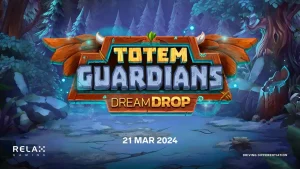
Monster Hunter Fishing
When it comes to thrilling adventures in the Monster Hunter universe, Monster Hunter Fishing stands out as a captivating activity that blends patience, skill, and strategic thinking. This aspect of the game not only offers a relaxing break from high-stakes hunts but also provides valuable resources and unique rewards that are essential for crafting and upgrading gear. Whether you’re a seasoned hunter or a newcomer eager to explore all facets of the game, mastering the art of fishing can significantly enhance your overall gameplay experience bắn cá đổi thưởng.
In this comprehensive guide, we’ll dive deep into everything you need to know about Monster Hunter Fishing, from the basics of setting up your fishing expeditions to advanced techniques for catching rare fish and maximizing your haul. We’ll also explore the different fishing locations, bait strategies, and the rewards that make fishing an integral part of the Monster Hunter world. Prepare yourself to cast your line into this engaging activity and uncover the hidden depths of Monster Hunter Fishing that await.
The Fundamentals of Monster Hunter Fishing
Getting started with Monster Hunter Fishing is both straightforward and rewarding for players at any level. Understanding the core mechanics is essential before diving into more complex strategies, especially since fishing can be a lucrative source of materials and a calming respite amid intense hunts.
Fishing in Monster Hunter typically involves finding specific fishing spots marked on your map, casting your line with the right bait, and patiently waiting for a bite. The process is simplified compared to hunting monsters, but it requires a good sense of timing and observation to succeed. The game uses visual cues and subtle animations to indicate when a fish is interested, making the skill of reading these signals vital for success.
Besides the mechanics of casting and reeling, mastering Monster Hunter Fishing also involves knowing which bait to use for different fish species, understanding the best times of day or conditions for high-yield catches, and learning how to deal with occasional disturbances or competitor fishers that can make catching rare specimens more challenging. As rewarding as it is relaxing, fishing in Monster Hunter is also an educational experience that deepens players’ engagement with the game’s ecosystem.
Setting Up Your Fishing Expedition
Before heading out to fish, preparing with the proper gear and understanding the environment can dramatically improve your results. Players must equip the right fishing rod, select appropriate bait, and sometimes even bring special items that influence fishing success.
The selection of fishing gear is quite strategic; certain fishing rods have higher durability or improved cast range, which makes it easier to reach distant or hard-to-access spots. Bait selection is equally crucial — different types of bait attract specific fish, and some bait combinations are more effective depending on the weather, time of day, or location. For instance, using high-quality bait can significantly increase your chances of hooking rare or elusive fish.
Once you’re well-equipped, approach the designated fishing spots on your map. These are usually marked with distinctive icons, and some locations may fluctuate or rotate the available fish depending on in-game events or seasons. It’s wise to take note of these changes and prepare accordingly to optimize your fishing expeditions. Learning the best times to fish during gameplay hours can also help you encounter rare species, adding an element of timing strategy to your fishing expeditions.
Tips for a Successful Catch
Success in Monster Hunter Fishing hinges on your ability to interpret visual cues and react quickly. When you cast your line and see a bobber or indicator move, timely reeling is essential. Patience is key — sometimes, it takes several casts before hooking a keep-worthy fish, especially elusive or rare varieties.
Pay close attention to the behavior of the fish and environmental cues. For example, a fish biting quickly might indicate a smaller meal, while a slow, deliberate bite can mean a larger or rarer species is interested. Responding promptly ensures you don’t lose your catch due to misplaced timing. Practicing these reactions can help you improve your overall success rate.





